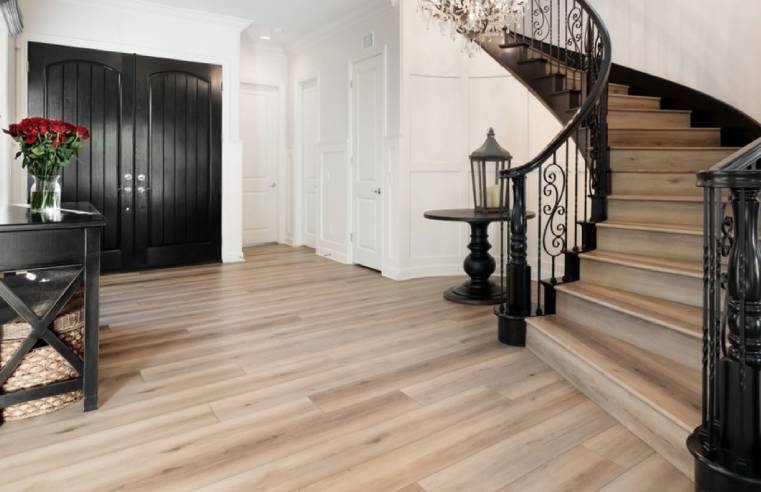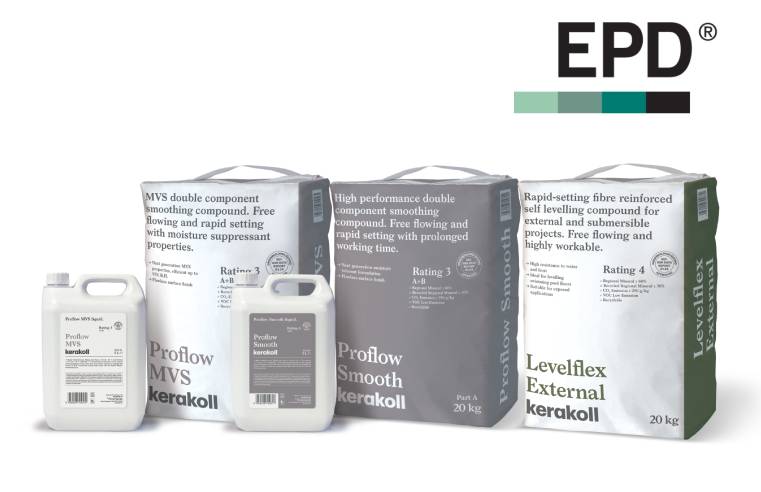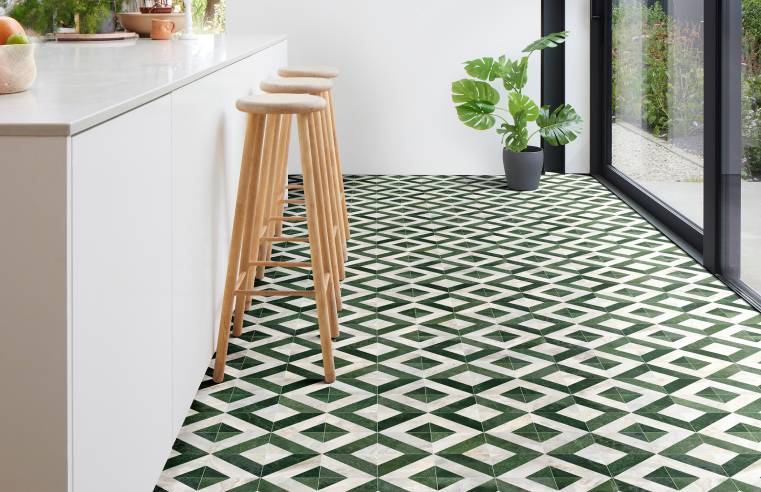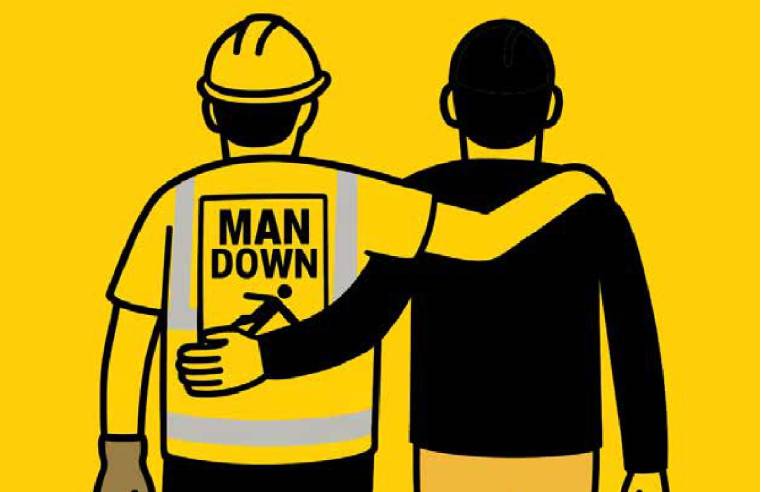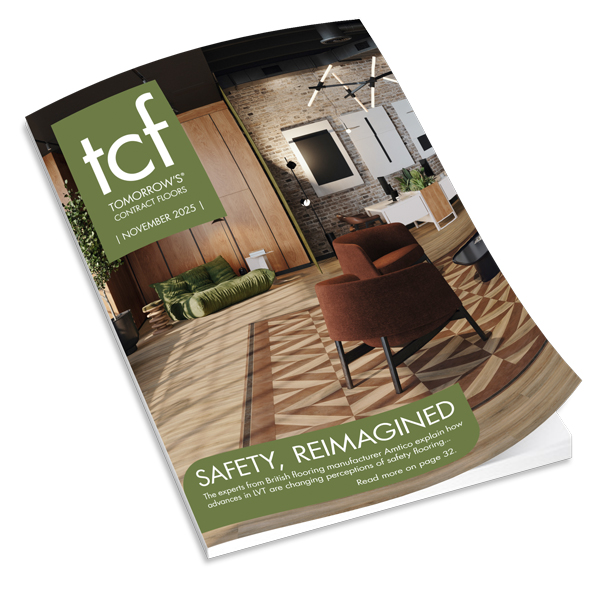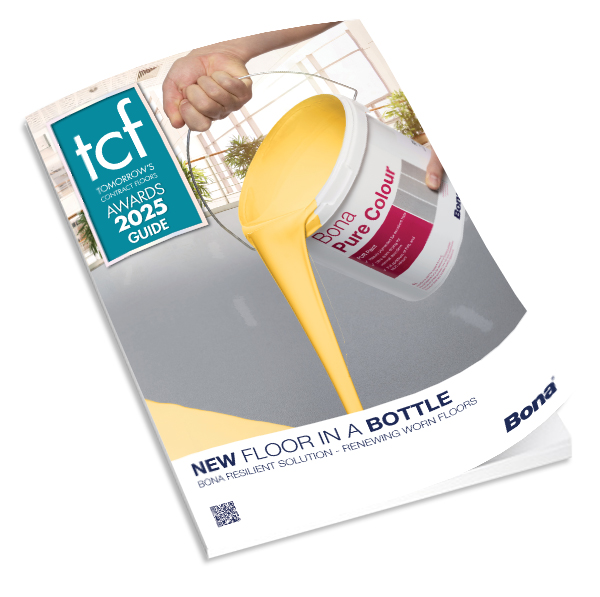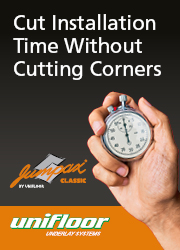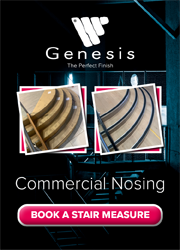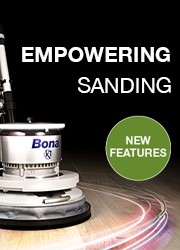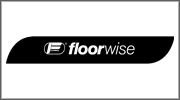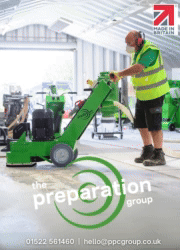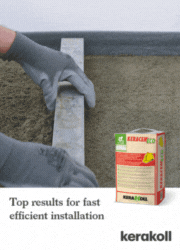You only need to look at the increasing floods and fires across the globe to recognise that we must take action now in the fight against climate change. However, a recent report from the Climate Change Committee says the UK is currently “woefully underprepared” to deal with the changes caused by climate change, and pressure is therefore mounting across all sectors, including the built environment, to play a part in tackling the crisis. Sending product to landfill has a high carbon footprint, which makes evaluating how our industry tackles waste management and looking for more circular solutions a top priority.
One such material is carpet tile. It gets installed in commercial spaces and serves its initial purpose, before being replaced as trends and requirements change – often well before it’s reached its end of life. But where does this carpet go? At the moment, the UK produces 500,000 tonnes of waste carpet every year and around 165,000 tonnes of this ends up in landfill or incinerators – releasing carbon emissions and costing the UK around £16.5m a year in damage to the climate.
To tackle this issue, flooring manufacturer and global leader in sustainability Interface is on a mission to keep these materials out of landfill by repurposing and recycling them with its ReEntry programme. Delivered through partnerships with specialist providers, including Greenstream Flooring CIC, the scheme supports the environment by saving Interface flooring from landfill and giving it a second life in vital community spaces or diverting it into sustainable recycling routes.
A powerful partnership
Passionate about reducing environmental impact and creating long-term skilled employment, Ellen Petts, the founder of Greenstream, had campaigned for waste awareness for local and national government before taking the leap to setting up the not-for-profit company. After a chance meeting with Interface in 2008, the two businesses realised they had the same goal of setting a clear recycling route for commercial carpet tiles following fit outs and refurbishments.
With Interface’s ReEntry scheme already established, Greenstream was a perfect partner for taking these carpet tiles and giving them a new life in spaces where they are truly needed, such as housing associations and education facilities. With a starting donation of 10,000m² of used carpet tile from Interface’s customers, Greenstream was born.
Ellen said: “Rehoming and repurposing floorcoverings is the foundation of our business – but it’s about much more than just diverting carpet tiles out of landfill. As well as educating others of the benefits of a circular economy for the future of our planet, we are achieving positive social impact across communities. At the centre of all the work we do are the principles of equality, respect, fairness, and sustainability.”
Fast forward 12 years and Greenstream has saved more than 634,000m² of carpet from landfill – which equates to 41,375 average domestic rooms or circa 100 football pitches – serving as a shining example of a circular business model in which materials are repurposed, extending their lives and creating real social, environmental and economic value.
How it works
Interface’s ReEntry scheme aims to make the recycling process as simple as possible for customers and fitters. After the carpet is taken up, it is collected and taken away to Greenstream’s warehouse. Once there, the floorcoverings are manually sorted into different grades depending on their condition and suitability for future use. Carpet tiles deemed to be an A, B or C grade can be reused within commercial, education or residential spaces, while grade D are generally too worn and unsuitable so are either used in other settings such as animal rehoming centres or taken to a recycling facility.
To ensure the flooring ends up somewhere it can benefit those in need, Greenstream, through its affordable flooring project, works closely with social enterprises across the UK and Ireland that specialise in rehoming carpet tiles, including charities, community groups and housing associations.
Supporting communities from the ground up
An example of one of the housing associations that Greenstream works with to support low-income tenants to get, otherwise unaffordable carpet on their floor is Newport City Homes (NCH). Greenstream began working with NCH in May 2019 and since then, has provided over 25,000m² of carpet to more than a hundred households with support from NCH, helping families to gain the basic warmth, comfort and insulation that carpet affords while also benefiting the environment by providing a zero embodied carbon, second-life option to the national issue of carpet poverty in social housing.
Another community group supported by Greenstream is Llamau, a charity supporting young homeless people and vulnerable women in South Wales. One of its projects is aiming to deliver Wales’ first youth housing scheme, which supports young people in building the skills they need to live independently. Pre-used flooring provided by Interface and Greenstream is being used in the region to help convert empty shell units into important, stable and real first homes, helping young people to get on their feet.
Greenstream also runs monthly community donation days which provide an opportunity for community groups and individuals not otherwise able to afford carpet to access free second-life carpet tiles for their homes or community spaces.
As well as the environmental benefits of converting an otherwise waste material into a community asset, as a social enterprise Greenstream, also trains and employs individuals from the region in skills relating to its operations. They are currently running a European funded project entitled The Better Greener Project that provides work-confidence and green-economy skills to local residents from their unit in South Wales.
Looking to the future, Ellen said: “As we continue to grow, we’ll work closely with Interface and our other partners to keep flooring out of landfill and put it to good use in settings where people can truly benefit from it. With an ever-growing focus on the fight against climate change, we’re committed to supporting a circular economy while benefiting the lives of people in the local communities.”
Becky Gordon, Regional Sustainability Manager (UKIME) at Interface, said: “We have to take action now if we’re going to have a chance at reversing the impacts of climate change. Giving materials a second life and striving towards a circular economy is a key part of this journey – and this is why we established our ReEntry programme. We’re proud of the strong partnership we’ve built with Greenstream over the last 12 years and this has enabled us to develop a transparent, sustainable and ethical end of life route for our flooring.”







